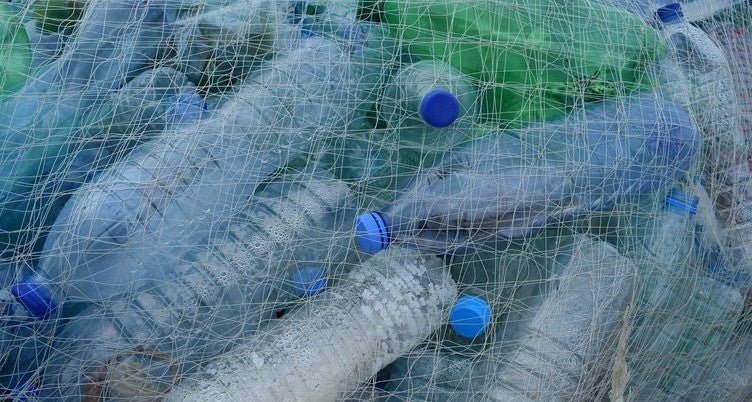BPA-free and, to a lesser degree, Phthalate-free are common buzzwords when talking about water bottles, shaker cups, and food storage containers. But exactly what is BPA, what are phthalates, and why is it important to choose products made from phthalate- and BPA-free plastic? And with plastics in use nearly everywhere, how is it even possible to differentiate and find these phthalate- and BPA-free products?
Let's start with a primer on these chemicals, how exposure occurs, and the health risks they represent. Armed with that knowledge, we'll help you navigate the wide world of plastics to identify phthalate- and BPA-free water bottles, shaker cups, and food containers. We'll also provide helpful tips to otherwise limit your risk of exposure to these chemicals in your day-to-day life.
What is BPA?
BPA is a chemical used to make lightweight, hard plastics such as clear (or clear tinted) water bottles and food storage containers. It is also found in epoxy resins used to line metal food cans and bottle tops. BPA can leach into food and beverages from these containers, especially if the containers are scratched or if the food or liquids are hot (thus, the recommendation to avoid microwaving foods in plastic containers). BPA exposure can also occur through dust, air, and water. BPA use is extremely widespread, and most of us have some level of BPA in our bodies. And while studies are ongoing as to the health risks posed by BPA exposure, the chemical is believed to have potential negative effects on the brain, behavior, and human development. Infants and children are thought to be at greatest risk from BPA exposure, and in 2012 the FDA banned the use of BPA in sippy cups and baby bottles (many baby bottle manufacturers had previously opted out of using BPA, but now this is mandated).
What are Phthalates?
Unlike BPA, phthalates (also known as plasticizers) are used in soft plastics, such as building materials and medical devices, to increase flexibility. This family of chemicals is also used in numerous everyday products, such as cosmetics, personal care products, detergents, food packaging, and plastic wrap. Humans can be exposed to phthalates through air, water, or food, and through using products that contain them. While research on phthalate exposure is also ongoing, evidence suggests that some of these chemicals may be carcinogens or adversely affect the human reproductive system.
So, you understand the basics of BPA and Phthalates. Now what can you do to avoid them or limit your exposure?
Choose BlenderBottle Brand Shaker Cups and Storage Containers.
All BlenderBottle brand products are (and always have been) BPA and Phthalate free. Our products are also free of Bisphenol S (BPS), a BPA substitute that may cause breast cancer cells to multiply. Additionally, and in compliance with industry standards, all our products are free from other harmful chemicals including lead and cadmium. We ensure that each material in all of our products undergo strict testing by an independent, third party company. Each material meets and often exceeds FDA, EU, and California Proposition 65 standards.
You can rest assured that all plastics used in BlenderBottle brand shaker cups including our bottle lids are free of potentially harmful BPA, phthalates, and other chemicals that pose health risks to children and adults. You can also opt to use the BlenderBottle SportMixer in stainless steel, or the all-new BlenderBottle Radian, which is offered in both insulated stainless steel and glass.
Here are some additional tips to help limit the chemical exposure in your daily life and ensure that you're using only phthalate- and BPA-free water bottles, food containers, and baby products.
Check Your Plastics.
- Most plastic containers have recycle codes on the bottom.
- The recycling code "3" is used for Polyvinyl Chloride (PVC) plastic, which contains phthalates; likewise, this category of plastics should be avoided.
- If a container does not have a recycling number on the bottom, it's going to be tough to know whether it's safe. Reach out to the manufacturer or, if you're particularly nervous, just toss it out.
- Scratched or damaged plastic containers pose a higher risk of leaching toxins into your food. As a general rule, it's good practice to toss out any plastics showing signs of wear and tear.
Do Not Microwave Polycarbonate Plastic Food Containers.
BPA is more likely to leach into food when the food is hot or boiling for example, when heated in the microwave. Additionally, while polycarbonate is durable, over time it may break down from overuse at high temperatures, making it more likely to leach toxins into your food. Use guaranteed BPA-free containers such as microwave-safe glass or porcelain instead.
Limit Your Use of Canned Foods.
Epoxy resins used to line metal food cans often contain BPA. The occasional use of BPA-lined food cans is most likely OK, but if your go-to lunch is a can of soup, you may want to rethink your meal plan. Many companies are moving toward using cans with BPA-free liners, however the cans are not always labeled accordingly. Our advice? Research your favorite brands and choose wisely.
Use Only BPA-Free Baby Bottles.
Following the FDA mandate, most baby bottles and sippy cups are now BPA-free. But if a bottle is not clearly marked, it may be suspect. When in doubt, toss it out!
There's a lot of information to navigate when choosing plastic bottles and food containers. We hope we've helped clarify the issues surrounding BPA and phthalates, and given you the assurance you need in the strict safety standards behind all BlenderBottle brand products.
What's your favorite phthalate- and BPA-free BlenderBottle shaker cup and why? Let us know in the comments below.


Leave a comment
All comments are moderated before being published.
This site is protected by hCaptcha and the hCaptcha Privacy Policy and Terms of Service apply.